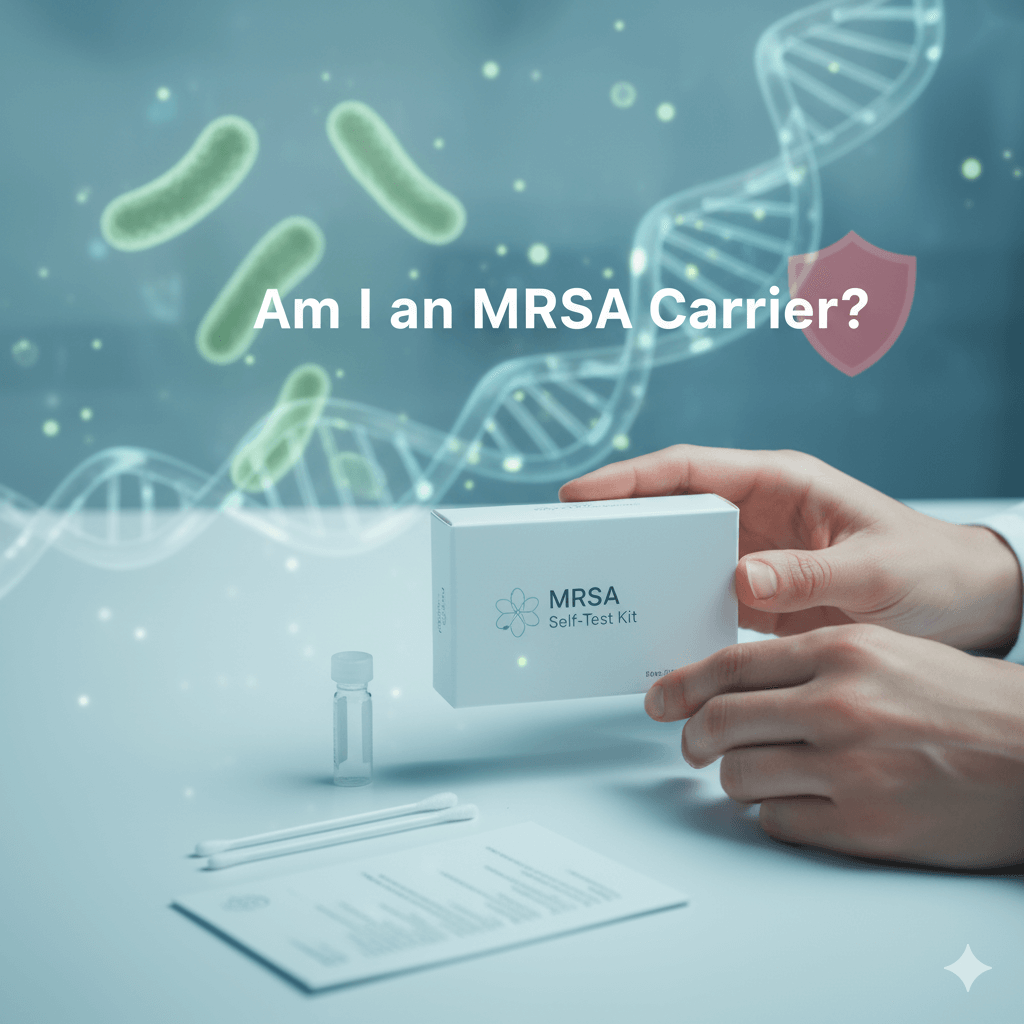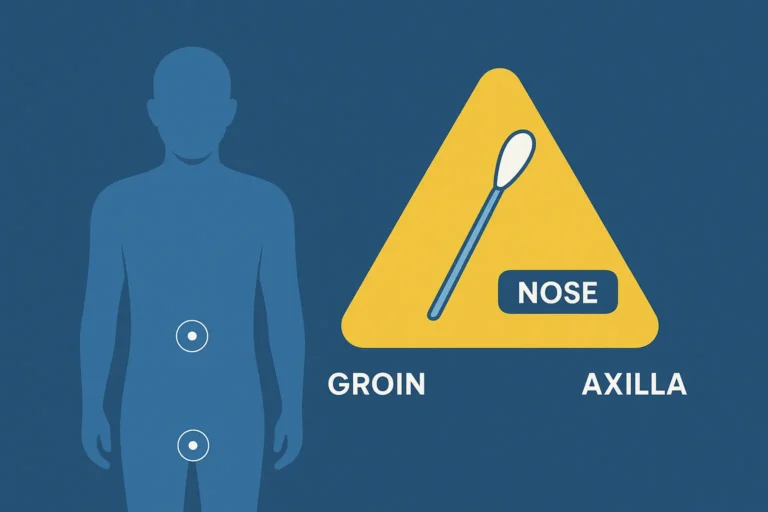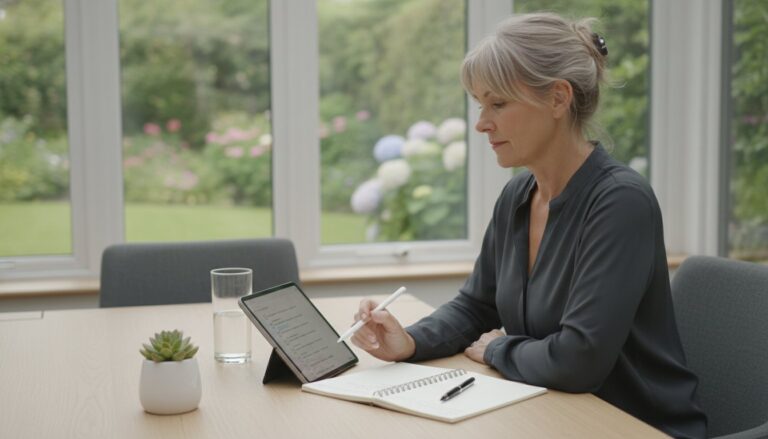Am I an MRSA Carrier? Understanding the Key Difference Between Colonization and Active Infection and How to Find Out.
Estimated Reading Time: 5 minutes.
The acronym MRSA (Methicillin-resistant Staphylococcus aureus) immediately raises concern, and rightly so. This bacteria is notorious for its resistance to several antibiotics and is a common cause of serious infections in hospital settings.
However, there is a vital distinction that most people don’t know: the difference between being colonized with MRSA and having an active MRSA infection.
Understanding this difference not only provides peace of mind but also helps you know when and how you should get an MRSA screening to protect yourself and your loved ones.
1. MRSA Colonization: The Silent Carrier
MRSA colonization occurs when the Methicillin-resistant Staphylococcus aureus bacteria lives on or in your body without causing any symptoms or illness. The bacteria simply resides with you, often in warm, moist areas.
Key Colonization Sites
If you are an MRSA carrier, the bacteria is most likely to be found in:
- Nose (Nasal Swab Site): This is the most common site.
- Groin (Groin Swab Site): A frequently colonized area, especially in hospitalized settings.
- Axilla (Underarm): An additional key site that increases detection sensitivity.
Do I Have Colonization Symptoms?
The answer is no. MRSA symptoms are non-existent if you are only colonized. A colonized individual is healthy, does not feel sick, and lives a normal life. This is the main reason why MRSA screening is so important: an asymptomatic carrier can still spread the bacteria to others.
2. Active MRSA Infection: When the Battle Begins
An MRSA infection occurs when the colonized bacteria manages to enter the body through a wound, a cut, or a medical device (like a catheter) and begins to actively multiply, causing tissue damage.
Symptoms of MRSA Infection
Unlike colonization, an active infection presents clear symptoms and requires immediate medical attention:
- Skin Infections: These can look like spider bites or pimples; the area becomes red, swollen, painful, and hot to the touch. Pus may be present.
- Severe Infections: If the bacteria enters the bloodstream (sepsis) or the lungs (pneumonia), symptoms include high fever, chills, chest pain, and shortness of breath.
- Surgical Site Infections: Excessive redness or purulent discharge at the site of a recent surgery.
If you suspect you have an active infection, you must contact a doctor or go to emergency care immediately.
3. Why is MRSA Screening (Testing) Crucial?
If colonization doesn’t cause harm, why bother testing?
Testing is a cornerstone of prevention. The majority of serious MRSA infections happen when a colonized carrier undergoes an invasive procedure (like surgery). During the procedure, the bacteria travels from the skin or nose to the surgical site or bloodstream, causing an infection.
MRSA screening helps to:
- Detect Early Colonization: Identify MRSA carriers before they enter the hospital or surgery.
- Prevent Infections: If the test is positive, doctors can apply special decolonization treatments before surgery, drastically reducing the risk.
4. How to Find Out If You Are a Carrier: The At-Home MRSA Test Kit
The only way to determine if you are an MRSA carrier is through a laboratory test.
Our MRSA home test kits are designed to make this process simple, discreet, and accurate, without the need for a clinic visit:
The Swabbing Process
The key to our high accuracy (over 95%) is multi-site swabbing:
- Nose and Groin: These are the two primary sites for the MRSA culture test.
- Axilla: Including this third site helps to maximize the MRSA detection rates for complete peace of mind.
Who Should Be Tested?
You may need an MRSA screening test if you:
- Have scheduled surgery (especially orthopedic or cardiac procedures).
- Are being admitted to a long-term care or hospital facility.
- Are healthcare staff or live with someone vulnerable.
Move from Doubt to Security Today.
Don’t let the uncertainty of colonization put your health or the health of others at risk. Order your MRSA self-test kit today and get fast laboratory results so you can take the necessary preventative measures.







